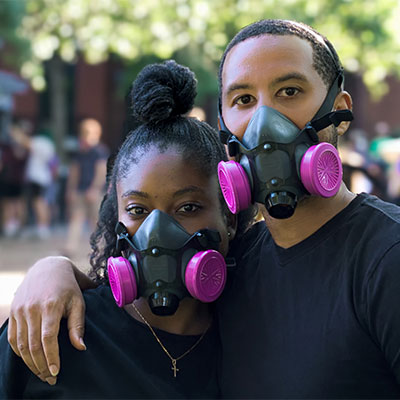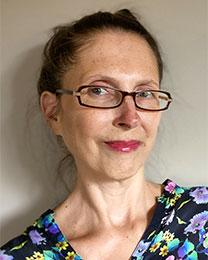
MULTIPLE CHEMICAL SENSITIVITY (MCS)
Chemical sensitivity (a.k.a. multiple chemical sensitivity (MCS); or environmental illness) is a condition characterized by an acute intolerance to low levels of chemicals, molds, and other substances. It is most often a hypersensitivity syndrome caused by a maladapted trauma response to a neurotoxic injury. Exposure to extremely low levels of an offending substance can cause a wide variety of symptoms, ranging in severity from mild to completely debilitating, and can even be life-threatening. There can also be organ damage from the environmental insult — whether that be mold, chemical injury, lyme disease, heavy metals.
Each sufferer’s triggers and reactions will be unique to their biochemistry and injury, and both their symptom set and reactivity level may change over time (getting better or worse depending on subsequent exposures and treatments, or lack thereof). Chemical sensitivity can affect multiple organ systems and is often progressive if lifestyle changes are not implemented. There have been several reported deaths from this illness.
IS IT A PROGRESSIVE CONDITION?
MCS is a spreading condition and can be progressive. It is often a primarily neurological condition even though reactions to stimuli can affect any organ system (e.g., respiratory, digestive). Typically one has a neurotoxic injury (from mold, chemicals, lyme disease, viruses, etc.) that initiates the condition. Once the brain is in a “sensitized” state, it is easier to become sensitive to other substances. Often what starts as a fragrance allergy can quickly become an intolerance to natural gas/propane, printing inks and other chemicals, foods, the sun, and electromagnetic fields. While some people have a limited sensitivity to one substance, others can become progressively worse until they are what is known as “Universal Reactors”.
Once you have awareness you are chemically sensitive, it is important to identify your current toxic exposures and eliminate them if possible. To lessen the chance of sensitizing to more and more substances, it would be good to eliminate chemicals from one’s diet and lifestyle, and begin a brain retraining program developed specifically for MCS – see the Annie Hopper DNRS program and Gupta Brain Retraining Program for more info.
HOW DO I KNOW IF I HAVE IT?
One (obvious) way to know if you have MCS is if your doctor diagnoses you with Environmental Illness (EI) or Multiple Chemical Sensitivity (MCS).
Another way you may know that you have MCS, is if you suddenly notice you are sensitive to fragrance and you weren’t before. It’s not just an annoyance, but actually causes real physical symptoms in your body that make it difficult to function during your day. You may notice that a perfume allergy has now grown to include natural gas and your new organic cotton bedding. Your life feels more and more unmanageable when you get these exposures that cause cognitive changes, nausea, vibrating sensations throughout your cells, respiratory distress, or other symptoms that people with MCS can experience.
If you think you may be developing chemical sensitivity, please seek out an Environmental Medicine or Functional Medicine/Integrative Physician familiar with the condition. Many allopathic doctors consider this illness to be psychosomatic and don’t know how to treat patients displaying these symptoms. It’s important to find a physician who understands the condition and can be supportive.
MCS VS. MCAS
To make matters confusing, there is a condition known as Mast Cell Activation Syndrome (MCAS) that has a lot of overlapping symptoms with MCS. However, it is thought to be caused by different mechanisms and the treatment is typically different. MCAS can be caused by a proliferation of mast cells — more than the average person has. Others have a normal amount of mast cells, but the ones they have over-react to stimuli. A subset of people have both an abundance of mast cells AND those cells are over-reactive. This is a severe form of the illness.
What are mast cells? Mast cells are sensors that sit in our cells and will explosively release chemical mediators — such as histamine — upon exposure to an environmental insult (infection, trauma, chemical exposure). The mediators that are released bind with receptors on the specific cells related to the environmental insult. Those cells then adapt their behavior to the mediators. Under normal circumstances, this is a normal process that the body easily recovers from. But in our modern age, the onslaught of all sorts of new chemicals has completely confused the mast cells’ evolutionary wisdom, causing them to malfunction in various ways. They are primarily found in our skin, our ocular system, our respiratory tract, gastrointestinal tract, and genitourinary tract. They are also in the walls of all the vessels and neurons throughout our body.
Physicians typically offer a range of antihistamine medications and supplements to those with mast cell issues. They work in different ways and the patient may find that some provide symptom relief and others do not. As far as I know, there is no eliminating MCAS, just symptom management.
IS IT POSSIBLE TO HEAL FROM MCS?
Though there is no sure-fire, across-the-board “cure,” it is possible to heal from chemical sensitivity that is primarily a hypersensitivity syndrome – and, even when total remission is not possible, there is a very wide range of improvements that ARE possible for each individual. Thousands of people have healed their chemical (and other) sensitivities using brain retraining programs focused on resetting limbic system function after a neurotoxic injury. The two main programs available for hypersensitivity syndromes like MCS are Annie Hopper’s Dynamic Neural Retraining System™ and the Gupta Brain Retraining Program. Your success will depend on how you apply yourself to the exercises, your level of brain plasticity, your current/ongoing toxic exposures, and other factors.
Brain retraining programs are just one way people have healed over the years. Others have found improvements through abstinence from chemical products and moldy living + work environments alone. Others have revamped their diet and lifetsyle and found their sensitivities went away or lessened greatly over time. Others have worked with functional medicine physicians, herbalists, and alternative practitioners to heal their lyme disease, address viral load, detoxify their system from mold and chemicals, and overall support their health. Others have turned to nature and camped in a tent for years, grounded barefoot on the earth, and swam in natural bodies of water to find healing and a return to homeostasis. And still others have found healing after devoting themselves to a spiritual practice. The important thing is not to give up hope – there is a way for everyone to access some level of healing no matter your physical, emotional and financial ability, or your belief system!
see also: Chemical Sensitivity







0 Comments